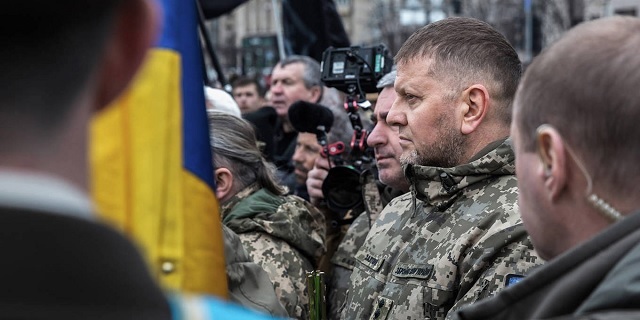
Both need his principled-pragmatism to combine fidelity to the goal with a concrete analysis of the situation
COMMENT | SLAVOJ ZIZEK | It is now a century since Vladimir Lenin’s death, and more than three decades since his Bolshevik project collapsed. But while much of his political life was highly problematic from today’s perspective, his remorseless pragmatism, as one might call it, still has purchase.
Recall Lenin’s well-known commitment to “concrete analysis of the concrete situation.” One must avoid both dogmatic fidelity to the cause and unprincipled opportunism. Under quickly changing real-world conditions, the only way to be remain truly faithful to a principle – to remain “orthodox” in the positive sense of the term – is to change one’s own position. Thus, in 1922, having won the civil war against all odds, the Bolsheviks embraced the “New Economic Policy,” allowing a much wider scope for private property and the market.
In explaining this decision, Lenin used the analogy of a mountain climber who must retreat “in order to leap further forward.” After enumerating the new Soviet state’s achievements and failures, he concluded: “Communists who have no illusions, who do not give way to despondency, and who preserve their strength and flexibility ‘to begin from the beginning’ over and over again in approaching an extremely difficult task, are not doomed (and in all probability will not perish).”
One hears echoes of Søren Kierkegaard, the Danish theologist from whom Marxists can learn quite a lot. Any revolutionary process, Lenin believed, is not gradual but repetitive, a movement of repeating the beginning again and again.
How better to capture where we are today? After the “obscure disaster” of 1989, which put a definitive end to the epoch that began with the 1917 October Revolution, one can no longer impute any continuity to what “the left” has meant over the last two centuries. Although indelible moments like the Jacobin climax of the French Revolution and the October Revolution will remain in our memory, those stories are over. Everything should be re-thought from a new starting point.
A fresh approach is more important than ever now that global capitalism has become the only true revolutionary force. What remains of the left is obsessed with protecting the old achievements of the welfare state, a project that largely ignores just how much capitalism has changed the texture of our societies over the last few decades.
There are exceptions, of course. Among the rare theorists and politicians who have recognised this process for what it is has been Yanis Varoufakis. Capitalism, he argues, is morphing into techno-feudalism, which is why the traditional anti-capitalist rhetoric is losing its traction. The implication is that we should abandon social democracy and its central idea of a left-liberal welfare state.
In a properly Leninist way, Varoufakis sees that the object of our critical analysis (capitalism) has changed, and we must change with it. Otherwise, we will just be helping capitalism revitalise itself in a new form.
Lenin’s form of pragmatism is by no means available only to the left. Last month, Ami Ayalon, a former leader of Shin Bet (Israel’s internal security service), called for a paradigm shift: “We Israelis will have security only when they, Palestinians, will have hope. This is the equation.” Because Israel will not be secure until Palestinians have their own state, Israeli authorities should release Marwan Barghouti, the jailed leader of the Second Intifada, to lead negotiations to create one.
“Look into the Palestinian polls,” Ayalon says. “He is the only leader who can lead Palestinians to a state alongside Israel. First of all because he believes in the concept of two states, and secondly because he won his legitimacy by sitting in our jails.” Indeed, many see Barghouti (who has been imprisoned for over two decades) as a kind of Palestinian Nelson Mandela.
Or consider an even more surprising example. Last week, the Ukrainian army chief, Valeriy Zaluzhnyi, following media reports that he may soon be dismissed from his post, published a commentary laying out his priorities for Ukraine and identifying the highest ones for the war effort. “The challenge for our armed forces cannot be underestimated,” he wrote. “It is to create a completely new state system of technological rearmament.”
What that means is a doubling down on “unmanned systems – such as drones – along with other types of advanced weapons, that provide the best way for Ukraine to avoid being drawn into a positional war, where we do not possess the advantage.” The “Iron General,” as he is sometimes called, then acknowledged that, with key allies grappling with their own political tensions, Ukraine must prepare for a reduction in military support.
I see Zaluzhnyi’s brief commentary as a Leninist (that is, principled-pragmatic) intervention. True, radical leftists and Zaluzhnyi himself will regard this characterisation as absurd, and I am no expert on the power struggles currently underway in Ukraine, nor on Zaluzhnyi’s role in them. All I am saying is that Zaluzhnyi has deftly combined fidelity to the goal (maintaining Ukrainian independence and territorial integrity as a democratic state) with a concrete analysis of the situation on the battlefield.
To put it bluntly, we are past the heroic phase of popular resistance to the invader and close personal combat on the front lines. Ukraine must reorient itself by adopting new technologies appropriate to a prolonged war, and by getting ahead of Western countries’ growing reluctance to deliver aid indefinitely. Ukraine will also need to get its own house in order, by acting more decisively against corruption and oligarchs, and by clearly articulating what it is fighting for.
Above all, Ukraine needs a shared vision that is not narrowly nationalist or defined by the suspicion that the Ukrainian left is pro-Russian. To withstand the effects of exhaustion from the war, Ukrainians must put themselves in the shoes of Lenin’s mountain climber.
*****

Slavoj Žižek, Professor of Philosophy at the European Graduate School, is International Director of the Birkbeck Institute for the Humanities at the University of London and the author, most recently, of `Heaven in Disorder’ (OR Books, 2021).
Copyright: Project Syndicate, 2024.
 The Independent Uganda: You get the Truth we Pay the Price
The Independent Uganda: You get the Truth we Pay the Price


